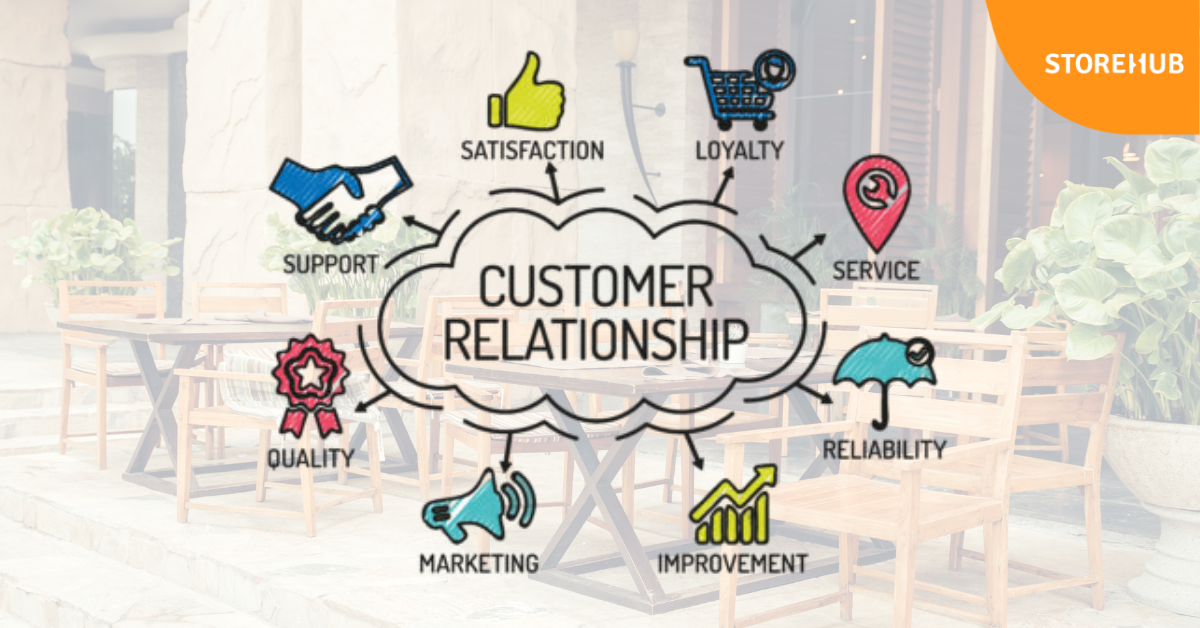In the services industry, where customer satisfaction is the cornerstone of success, building strong relationships isn’t just a competitive advantage—it’s a necessity. This is where Customer Relationship Management (CRM) steps in as a transformative tool. CRM in services helps organizations go beyond transactions to create meaningful, long-term connections with their clients.
Unlike product-based businesses, service-oriented companies thrive on interactions, loyalty, and trust. Whether it’s a law firm, marketing agency, IT consultancy, or hospitality provider, CRM empowers service providers to deliver personalized experiences, streamline operations, and retain customers in a highly dynamic market.
Understanding CRM in the Service Industry
CRM in services refers to the strategic use of technology and processes to manage customer interactions, preferences, and needs throughout the entire lifecycle. This includes everything from the first inquiry and onboarding to ongoing support and renewal.
It centralizes customer data, tracks communication history, and enables teams to respond proactively to client concerns or preferences. In service environments, where human connection often defines the customer journey, CRM helps ensure consistency, personalization, and reliability.
Why CRM Is Essential for Service-Based Businesses
Services are intangible. Customers can’t touch or test what they’re buying in advance, so their perception is largely shaped by communication, follow-up, and delivery. CRM plays a vital role in reinforcing trust, offering timely support, and keeping clients engaged.
Key benefits include:
✅ Personalized Service Delivery
CRM tools help you understand client needs, track their service history, and tailor offerings accordingly.
✅ Centralized Communication
All email conversations, calls, meeting notes, and documents are stored in one system, accessible by your entire team.
✅ Better Time Management
Automated reminders, task scheduling, and appointment bookings save time and reduce missed opportunities.
✅ Increased Client Retention
By staying proactive, offering value, and nurturing relationships, you keep your clients satisfied and loyal.
✅ Scalable Service Models
As your client base grows, CRM systems help you manage more accounts without compromising on quality.
Key Features of a CRM for Service Providers
To serve the unique needs of service-based industries, a CRM platform should offer features like:
-
Appointment Scheduling: Bookings and reminders for consultations or service sessions.
-
Service History Tracking: Maintain detailed records of services provided and outcomes.
-
Automated Follow-Ups: Schedule check-ins, thank-you messages, and review requests.
-
Client Segmentation: Group clients by service type, status, or value for targeted communication.
-
Feedback Collection: Integrate surveys or forms to gauge satisfaction and improve service.
-
Mobile Access: Enable field service teams or consultants to update records in real time.
Use Case Examples: CRM in Action Across Service Industries
1. Legal Services
Law firms use CRM to manage client case histories, schedule court dates, and maintain confidential communication records.
2. Healthcare Providers
CRM allows clinics to send appointment reminders, track patient visits, and personalize wellness communication.
3. Consulting Firms
Consultants use CRM to monitor client project progress, share documents, and provide performance analytics.
4. Hospitality & Travel
Hotels and tour operators use CRM to offer personalized packages, record guest preferences, and automate reviews post-stay.
5. IT Services
Tech support companies leverage CRM to assign tickets, record issues resolved, and follow up for client feedback.
Integrating CRM with Other Service Tools
To maximize value, service companies often integrate CRM with tools like:
-
Accounting Software (e.g., QuickBooks, Xero)
-
Helpdesk Platforms (e.g., Zendesk, Freshdesk)
-
Email Marketing (e.g., Mailchimp, Constant Contact)
-
Scheduling Tools (e.g., Calendly, Acuity)
-
Project Management (e.g., Trello, Asana)
Integration ensures seamless flow of information across teams and systems, eliminating manual entry and reducing errors.
Choosing the Right CRM for Services
When selecting a CRM system for a service-based business, consider:
-
Ease of Use: Your team should be able to adopt it without steep learning curves.
-
Customization: It should fit your specific workflow and client process.
-
Automation Capabilities: Look for features that handle repetitive tasks and save time.
-
Scalability: Ensure the CRM grows with your business and can handle more clients and complexity.
-
Support and Training: Opt for vendors with reliable customer service and onboarding tools.
Popular CRMs for service businesses include Zoho CRM, HubSpot, Freshsales, Keap, and Salesforce Service Cloud.
Future of CRM in the Service Sector
As AI and machine learning continue to advance, the future of CRM in services will likely include:
-
Predictive Analytics: Anticipating client needs based on past behavior.
-
Chatbots and Virtual Assistants: 24/7 automated support for client inquiries.
-
Smart Scheduling: Real-time appointment optimization using AI.
-
Voice-Activated CRM Access: Hands-free updates and information retrieval.
CRM will evolve into a more intelligent partner, assisting teams in providing exceptional service with less effort.
Conclusion: CRM as a Pillar of Service Excellence
In service-based industries, customer satisfaction is the product. That’s why CRM in services is more than just a tool—it’s a business philosophy. By investing in a CRM system tailored to service delivery, companies gain the ability to foster loyalty, build trust, and exceed expectations.
Whether you’re managing ten clients or ten thousand, CRM ensures that every interaction counts. In a sector where relationships are everything, CRM isn’t just helpful—it’s essential.
Key CRM Features for Service-Based Businesses
While each service business may have unique requirements, here are the CRM features most relevant to the service industry:
🗓 Appointment Scheduling
Allow clients to book, reschedule, or cancel appointments online. Automate reminders via email or SMS to reduce no-shows.
📋 Customer History Tracking
Access a client’s full history—including previous services, complaints, and preferences—before each interaction.
🎯 Service Ticketing
Assign, track, and resolve customer issues using an integrated support ticketing system.
📈 Analytics and Reporting
Monitor KPIs such as average resolution time, customer satisfaction scores, and repeat business rates.
📬 Automated Follow-Ups
Send thank-you messages, feedback requests, or service reminders automatically after appointments or purchases.
🤝 Loyalty Management
Track referrals, reward repeat clients, and offer exclusive deals to increase retention.
Examples of CRM in Different Service Industries
Let’s explore how CRM systems are used across various service sectors:
1. Hospitality
Hotels use CRM to personalize guest experiences—remembering room preferences, sending birthday offers, and tracking feedback after stays.
2. Healthcare
Clinics manage patient appointments, reminders, prescription histories, and follow-up care using CRM platforms.
3. Consulting
Firms track client projects, send invoices, and maintain detailed communication logs to ensure timely and informed consulting services.
4. Salons & Spas
Manage bookings, upsell services, and send promotional campaigns based on client preferences and visit history.
5. Home Services (Plumbing, Electrical, Cleaning)
CRM helps track service locations, manage technician schedules, handle payments, and request service ratings post-visit.
Benefits of CRM in the Services Sector
The benefits of CRM in service-based businesses are tangible and wide-ranging:
-
Higher Customer Satisfaction
By anticipating needs and responding promptly, businesses can exceed expectations. -
Operational Efficiency
CRM automates many manual tasks, allowing teams to focus on client care instead of admin work. -
Data-Driven Growth
Identify your top-performing services, most loyal customers, and common complaints to make better decisions. -
Enhanced Team Collaboration
Multiple staff members can access the same customer profiles and notes, ensuring seamless transitions between agents or departments.
Choosing a CRM for Your Service Business
When selecting a CRM system for a service business, prioritize:
-
Ease of use
-
Mobile access for field staff
-
Integration with email, calendars, and accounting tools
-
Customization for your specific workflow
-
Customer support and onboarding assistance
Popular CRM tools suited for service businesses include Zoho CRM, HubSpot, Freshworks CRM, Jobber, and ServiceTitan—each offering tailored solutions for different types of service providers.
Final Thoughts: Service Is the New Sales
In the service industry, every interaction counts. A missed appointment, a delayed follow-up, or an impersonal experience can drive customers away. With CRM in services, businesses can maintain high service standards, foster loyalty, and stay competitive.
As industries shift toward customer-centric models, the ability to understand, predict, and fulfill client needs becomes the greatest asset. And at the center of that transformation is a well-integrated CRM system.

